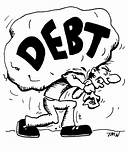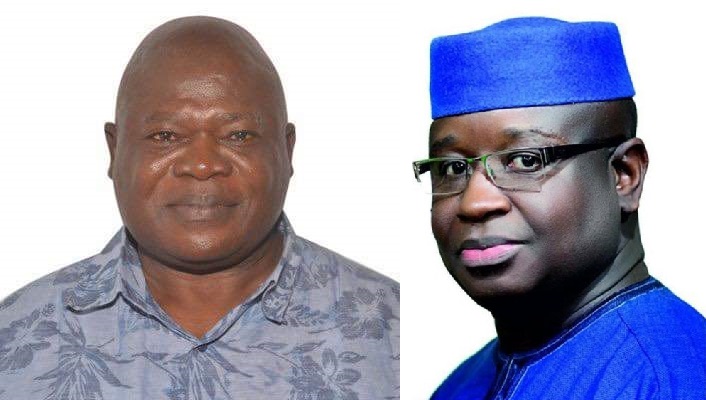The renowned Nigerian novelist, Chinua Achebe in his world-famous novel “Things Fall Apart” first published in 1958 brought up issue of debt and the inability to pay in the character Unoka.
Unoka was this lazy man who was very fond of borrowing money but had not the means to repay. One day, one of his infuriated creditors came to Unoka and asked to pay what he owed him. Unoka showed his creditors a long list of other people that he owed money.
Unoka’s situation is similar to what Sierra Leone now finds it in terms of its ability to repay its debts which have kept growing with the country having limited means to repay them.
Put in context, Sierra Leone’s total public debt at the end of 2020 amounted to Le30.71 trillion (USD 3 billion). This amount was more than the entire 2019, 2020 and 2021 government budget. In terms of Gross Domestic Product (GDP), the total public debt is 74.24 percent.
The implication is that the country is exposed to high risk of debt distress for which sound macroeconomic policies should be pursued to make it sustainable.
From December 2019 to December 2020, public debt increased by 14.69 percent. This was as a result of domestic borrowing to implement the national budget.
The problem is with debt servicing. Total debt service payments for both external and domestic debts increased from Le1.48 trillion in 2019 to Le2.55 trillion in 2020 – 43 percent of the total revenue collected in 2020.

It is noted that the falling exchange rate is a key driver for the increase in external debt service payment. The challenge for the government is how to stop further erosion of the value of the Leone against the dollar – the world’s leading international trading currency on the understanding that continued devaluation of the value of the Leone has a direct impact on inflation and upward market prices including those for food and fuel.
Thus, the need for the government to collect more tax revenue has to do with the domestic macroeconomic risks of continued high debt and domestic payment of arrears, slower than expected revenues and raped growth in monetary aggregates, including the associated inflationary risks and financial sector weakness.
Economic experts have stated that downsizing of the government would be an integral part of nay actions to reduce the public debt because despite credits and grants from international financial institutions in 2020 and 2021 (mainly IMF and AfDB) to help the country meet urgent balance of payments and fiscal needs from the pandemic, the country needs increased external financial assistance to support a resilient recovery.
As such, aware of the near Insolvent (broke) state the country is in, for humanitarian organization – Budget Advocacy Network (BAN), Christian Aid, Actionaid – Sierra Leone and OXFAM have come together to call for debt relief, cancellation, transparency, and accountability on the premise that high debt burden limits socioeconomic growth and development of nations, not only Sierra Leone.
These advocates agencies recommend that Sierra Leone joins other low-income debtor countries to push for another round of debt relief, stock cancellation that would free fiscal space to accelerate spending in the social sectors that would facilitate the attainment of the SDGs.

They believe that easing debt service burden would strengthen fiscal policy to promote socioeconomic development and prioritize spending on infrastructure to close the huge infrastructure deficit without compromising a sustainable debt path.
While seeking debt relief, they further recommend that GoSL should strongly pursue the debt pointy articulated by the Minister of Finance in the 2021 budget:
Continue to seek financing for grant and highly concessional loans l
Limit domestic borrowing within sustainable fiscal anchor
Continue to explore non-debt creating financing models such as PPP
Pay outstanding stock of verified domestic suppliers and contractors’ arrears subject to availability of budgetary resources.
The advocates also urge the government to work with Parliament to strengthen legal frameworks to ensure transparency and accountability for sovereign debts negations, borrowing and management as espoused in the African Borrowing Charter.
Government should also provide sound fiscal policy management anchored on efficient tax and expenditure systems that would minimize inefficient and unproductive public spending.
There should also be in place improved governance that would strengthen public institutions with oversight functions to monitor the quality of public financial management and service delivery.











